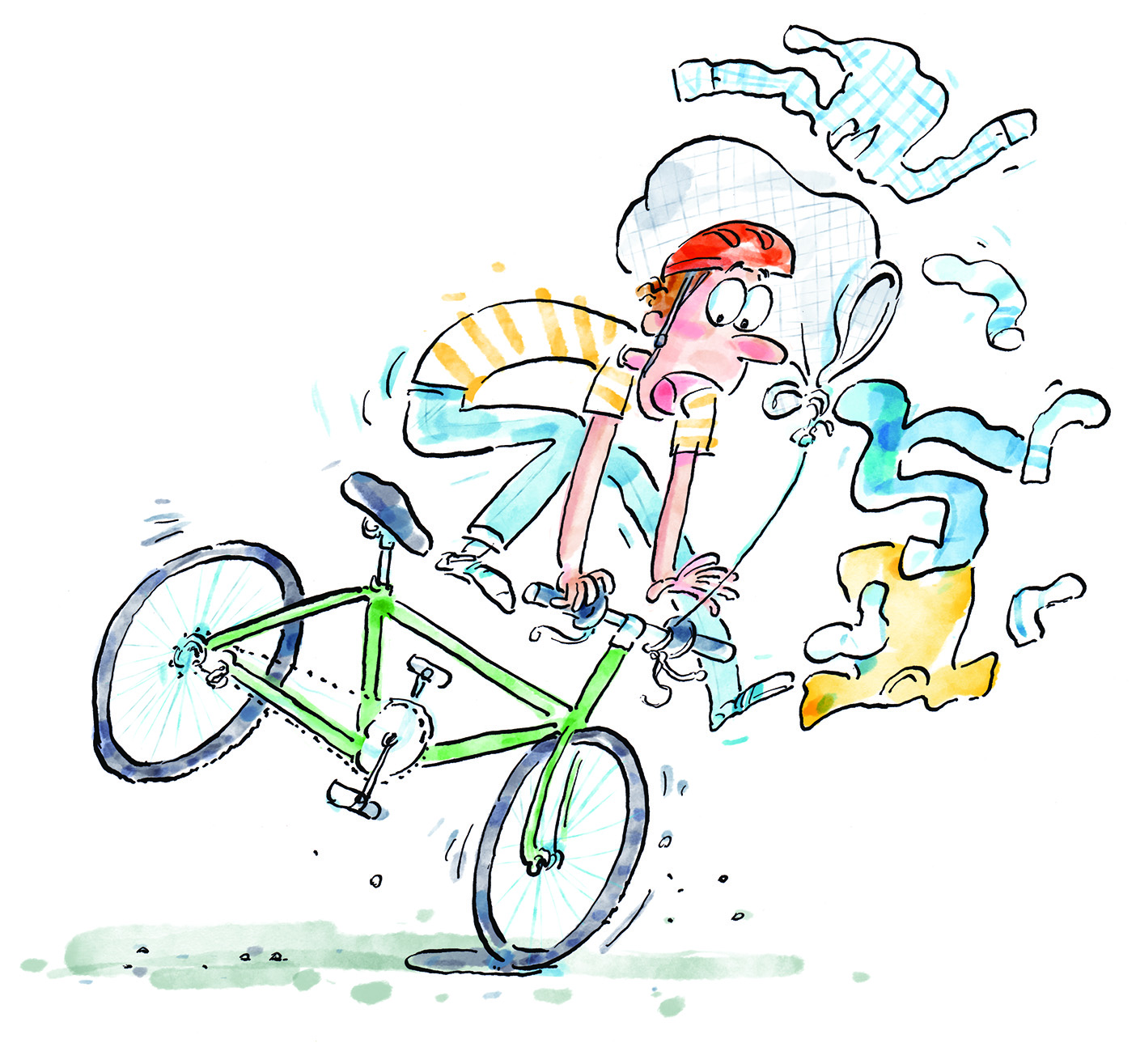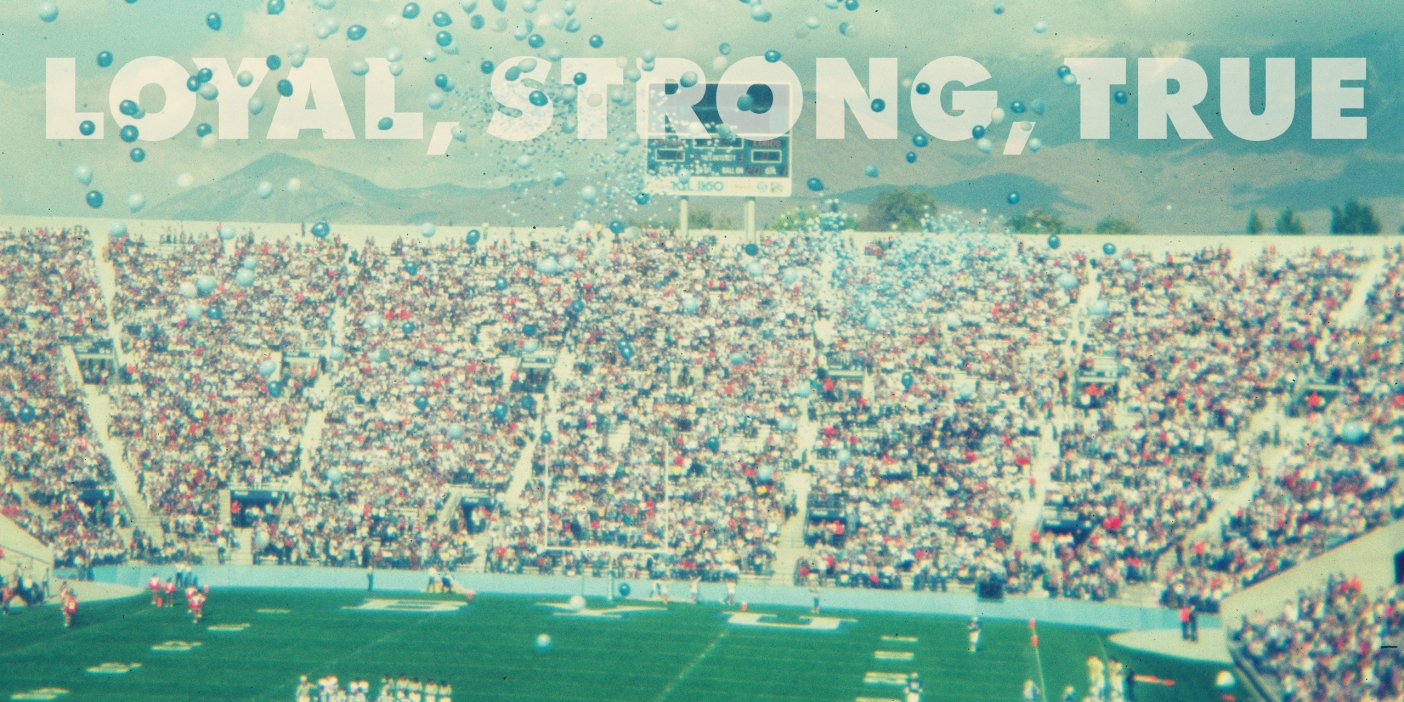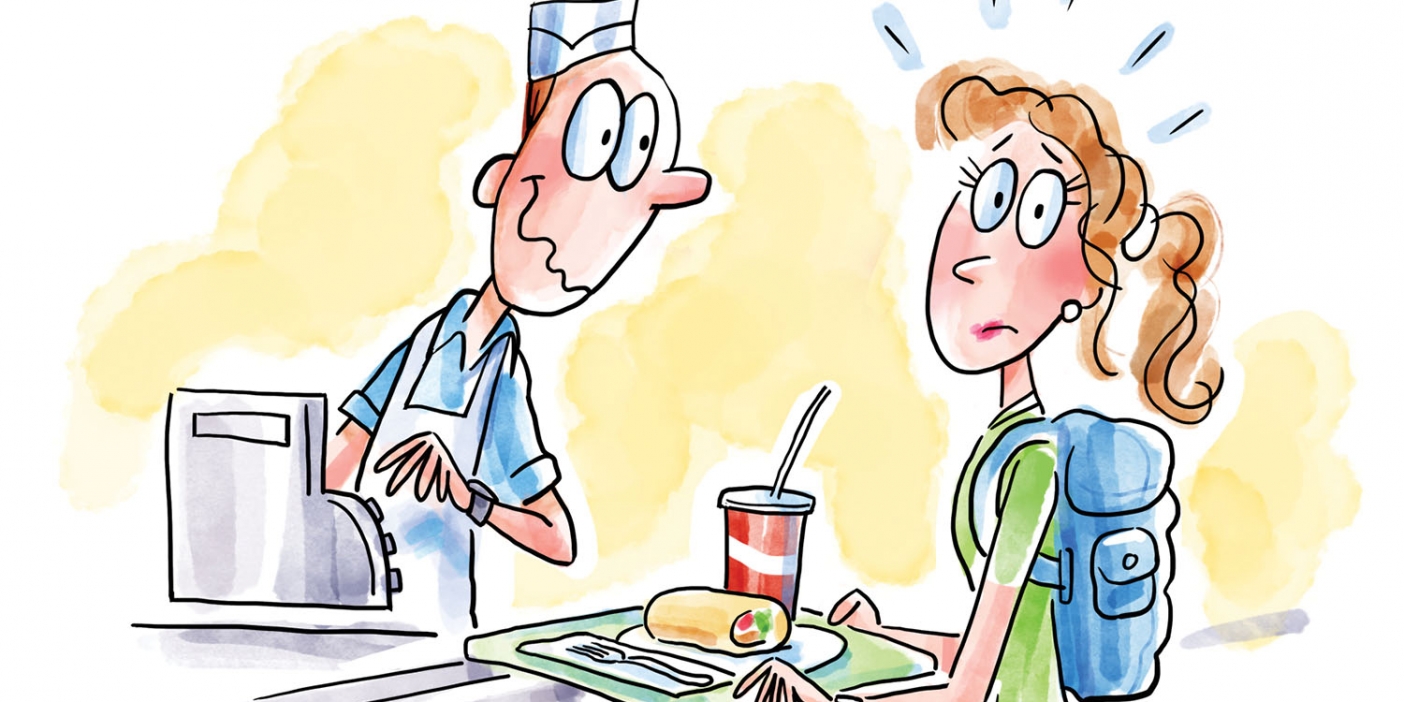With loathing, love, or laughter — sometimes all three —students tackle one of life’s grown-up chores.

Pounding the Pavement
By Garrett T. Hoyos (BFA ’15), Topeka, Kan.
One year at BYU I lived in an apartment without a washer or dryer. Every week I tied my overstuffed, nylon-mesh bag around my bicycle frame, balanced the clothes over my shoulder, and rode to the laundromat. It was awful. I dreaded doing my laundry more than I dreaded taking finals. One day, riding home with clean clothes over my shoulder, I hit a pothole, swinging my Santa-sized laundry bag under my wheel. The bike slammed to a halt, flipping me over the handle bars and onto my clothes. My bag was ripped, so I hung half of my clothes over my handlebars, shoved the rest into my pants, and walked home looking like a stuffed penguin. For weeks I found bits of asphalt in my clothes.
Laundry Ever After
By Luke A. Alo (BA ’04, MPA ’12), Frederick, Md.
When a beautiful girl walked by my apartment window toward the laundry room in our complex, I wanted to strike up a conversation. There was one problem: I had just finished my laundry! Thinking quickly, I threw a bunch of clean clothes into my hamper and raced down. But by the time I arrived, she had already returned to her apartment. I decided to give it one more try. I knocked on her door and sheepishly told her I wanted to do some laundry but I had no detergent. She took pity on me and gave me the last of hers. The next day I knocked on her door with a new container, and when she stopped by my apartment the day after with cookies, I knew I’d made the right decision. We were married that summer, and we’ve been washing and folding laundry together for nearly 13 years.
Wagonloads of Love
By Debra P. Owen (BGS ’06), Gardiner, Maine
Once a week as a young mother I would load up the family’s little red wagon with crumpled clothing, jugs of cleaning supplies, and a baby carrier. On the walk to the laundry house, my baby, 3-year-old, and I would often stop to chat with a friend or admire a flower or a rock. All seemed right with the world when I arrived to find five empty washers. So with the help of little hands, I fed each machine its required fare. Then the machines did the work while we did the playing. Oh, those blissful moments spent on the swings, the slide, or just as passengers in our wagon. Last came the folding and packing of the wagon. The trip back home made little noise, with my pocketful of coins empty and the little red wagon now magically transformed. The years have gone by and my laundry trips have ended. But oh how I wish for a laundry play-day again, with two little ones in a red wagon to share it with.
Front Desk Faux Pas
By Heather Kidd, Montgomery, Ala.
During his last year at BYU, my new husband, Shad R. Kidd (BA ’03), and I worked at the BYU Laundry. One day, a handsome older man came in with some suits and I greeted him casually and asked for his name. “Bateman,” he said. A few weeks later, he came back and I had to ask his name again. Leaning slightly over the counter, he repeated: “Bateman.” Just then my coworker came over and whispered, “That’s the president of the university!” In a flustered tone, I told President Merrill J. Bateman that I was new here, having just married one of his students. I was grateful for his sense of humor that made his future visits one good-natured tease after another. And I never forgot that face again!
Rogue Red

By Erin Paciotti Cantwell (’99), Rowlett, Texas
I was blessed with a mother who enjoyed doing laundry, so I arrived at BYU with little experience. Nevertheless, with first-timer’s enthusiasm, I cheerfully made my way to the basement facilities of Deseret Towers. Remembering the few tips I gleaned at home, I sorted my clothes into light and dark loads, filled two washers, and happily closed the lids as the water rushed in. Then I skipped upstairs to pass the time with my new roommates. I later trotted back down to the basement.
Imagine my surprise when I lifted the lid to find that my light load, while blissfully clean, was now pink! Formerly snowy white socks, underwear, and shirts were resting in a rose-tinged heap. In a hasty panic I bolted back to my room to call my mother. As I had hoped, she had a product recommendation that saved me from the doom of carnation-colored undergarments. A short while later, as my clothes tumbled in the dryer in all their lovely whiteness, I felt deeply thankful for my sweet mother and vowed to be more watchful for hidden red socks when sorting future loads!
Clean Reading
By Helen Walker Jones (BA ’68), Salt Lake City
During my senior year, I crammed for my comprehensive English exam by immersing myself in dozens of novels. When I occasionally went home for the weekend, my mother was always looking over my shoulder, and a few times I caught her shaking her head with disapproval at the books I was reading.
One laundry day I packed my basket with dirty clothes, detergent, quarters, and my copy of The Grapes of Wrath. However, after filling the washing machines, I couldn’t find my book anywhere. It didn’t take long to realize that I had accidentally dumped it in with the laundry. When I fished it out, the book was dripping wet, with all of the pages stuck together, the ink starting to smear, and the cover peeling in soggy layers. I tried to dry it the best I could, but finally tossed it into the garbage.
That weekend, I related the experience to my mom, complaining about having to spend my hard-earned money on a second copy. Mom laughed and said with a smirk, “Well, that’s what you get for reading those dirty books!”
Put a Wring on It
By Paula Ferrin Hunt (BA ’75), Nampa, Idaho
My husband and I had been married just one week when we rented half of a house with “laundry privileges.” Our wringer washer sat in the kitchen, and when I was ready to wash, I filled it with hot water—what there was of it—put in detergent and clothes, and turned it on so it could agitate. I then put our clothes through the wringer, back in the tub to rinse and wring again, then into the backyard to hang. As a senior, I felt above all of this, but the reality of dirty clothes and no money won out.
That winter it was below zero for weeks at a time, so I strung laundry all over the kitchen. And when the wringer died an unlamented death in January, our landlord promised to replace it—I assumed with something from the 20th century. But one day after class I was astonished to discover a brand new wringer washer on the porch. Who knew they still made them?












